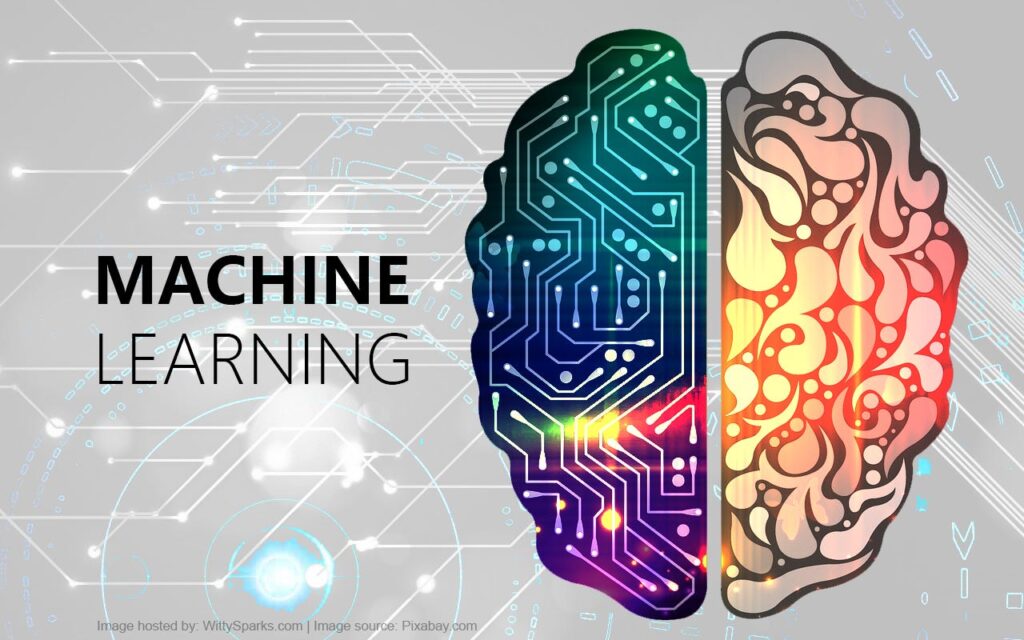Machine learning, a crucial aspect of artificial intelligence (AI), empowers systems to learn from data and make intelligent decisions autonomously. In this article, we will delve into the concept of machine learning, its role in AI, and the impact it has on various industries.
What is Machine Learning?
Machine learning refers to the ability of computer systems to learn and improve from data without explicit programming.
It involves developing mathematical models and algorithms that automatically analyze data, identify patterns, and make predictions or decisions based on the observed information.
By leveraging statistical techniques, ML enables systems to adapt and improve their performance over time.
The Intersection of Machine Learning and Artificial Intelligence
MachineLearning serves as a fundamental pillar of artificial intelligence. It empowers AI systems to process vast amounts of data, extract meaningful insights, and emulate human-like decision-making processes.
By integrating machinelearning algorithms into AI frameworks, developers can create intelligent systems that learn, reason, and exhibit cognitive abilities.
The Importance of Machine Learning in AI Applications
Machinelearning plays a pivotal role in enhancing the capabilities of AI applications across diverse domains. It enables intelligent systems to analyze complex data, recognize patterns, and make accurate predictions.
Whether it’s in healthcare, finance, marketing, or autonomous vehicles, machinelearning enables AI to deliver valuable solutions, optimize processes, and drive innovation.
MachineLearning Techniques and Algorithms in AI
Various machinelearning techniques and algorithms contribute to the success of AI systems. These include:
- Supervised learning: Algorithms learn from labeled training data to make predictions or classify new data.
- Unsupervised learning: Algorithms discover patterns and structures within unlabeled data to reveal hidden insights.
- Reinforcement learning: Algorithms learn through interaction with an environment, receiving rewards or penalties based on their actions.
- Deep learning: Neural networks with multiple layers that learn hierarchical representations of data, enabling complex pattern recognition.
Real-World Applications of Machine Learning in AI
Machinelearning finds applications in numerous fields, such as:
- Healthcare: Assisting in diagnosis, drug discovery, and personalized medicine.
- Finance: Facilitating fraud detection, risk assessment, and algorithmic trading.
- Natural Language Processing: Enabling chatbots, language translation, and sentiment analysis.
- Image and Speech Recognition: Powering facial recognition, object detection, and voice assistants.
- Autonomous Vehicles: Enhancing self-driving cars’ perception, decision-making, and Navigation systems.
Challenges and Future Directions in Machine Learning for AI
While machinelearning has achieved remarkable milestones, it also faces challenges. These include:
- Data quality and availability: Acquiring reliable and representative datasets.
- Model interpretability: Ensuring transparency and understanding of complex models.
- Ethical considerations: Addressing biases and ensuring fairness in decision-making.
- Scalability and efficiency: Developing algorithms that handle large-scale data in real time.
Conclusion
Machine learning is a transformative force in the field of artificial intelligence, driving innovation and revolutionizing industries. By enabling systems to learn from data, machinelearning empowers AI to make informed decisions, predict outcomes, and deliver intelligent solutions.
As technology advances, machinelearning will continue to shape the future of AI, opening new possibilities and ushering in a new era of intelligent automation.

